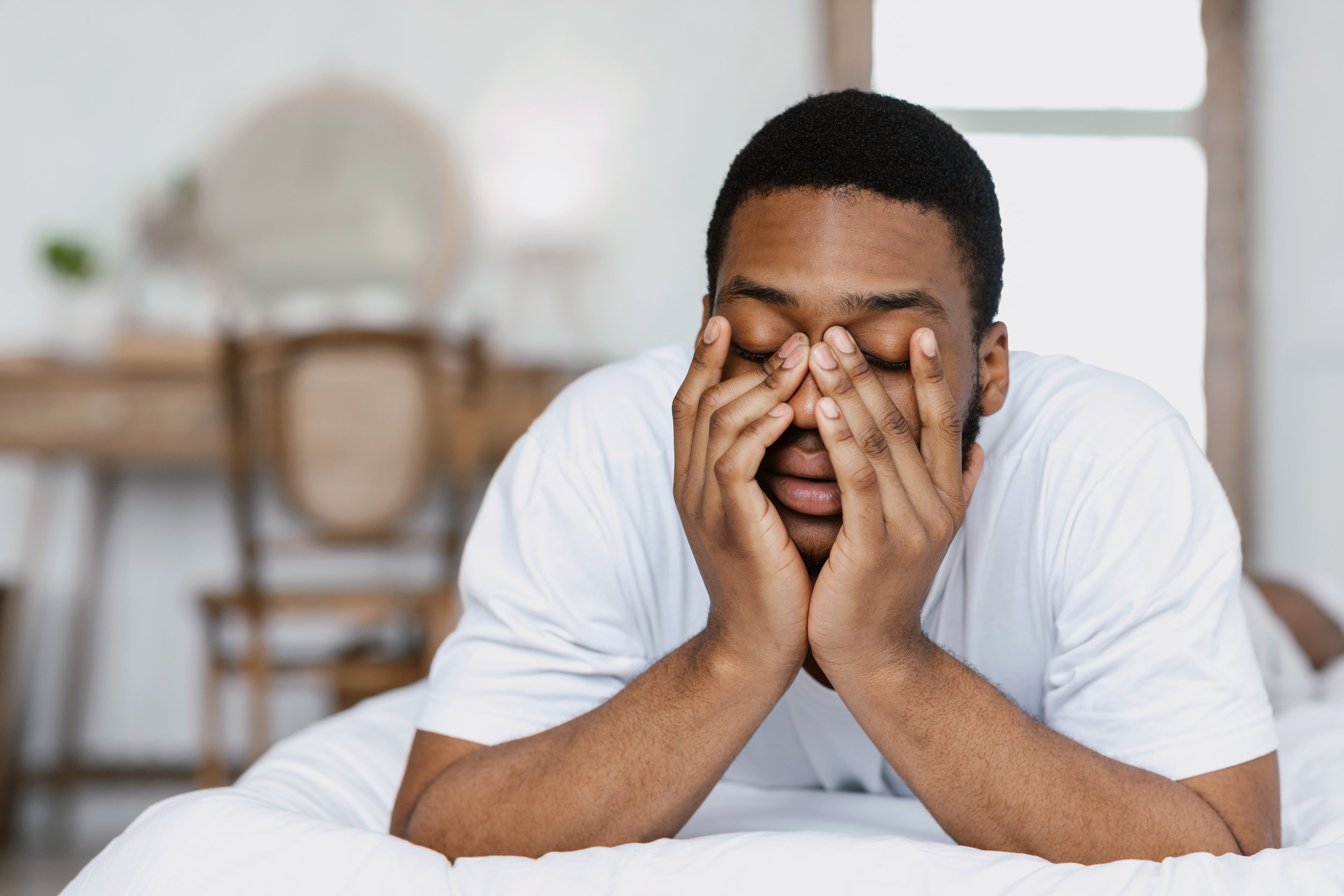”Kansas, did you know sleep and cholesterol are connected? You can learn all about the role cholesterol plays in our body, in addition to this interesting connection. We hope you learn something new!
Reading Time: 5 Minutes
MWi Hacks:
- Find out why understanding Cholesterol can help to drive better holistic wellness solutions
- Learn how to optimize some areas of your daily routines to improve your sleep
MWi Summary:
- Cholesterol plays a role in producing vitamin D, certain hormones, and forming cell membranes. Low-density lipoprotein (LDL) is the type of cholesterol associated with negative health effects. High-density lipoprotein (HDL) performs important functions in the body.
- Sleep deprivation is connected to high triglycerides, low HDL levels, and high LDL levels according to separate studies published by Sleep and the Journal of Cardiovascular Nursing.
- In addition to getting enough sleep, you can make other lifestyle choices to help manage cholesterol levels such as diet and exercise.
Is There a Link Between Cholesterol and Sleep?
When it comes to dealing with high cholesterol, many people think first about their diet and exercise habits. Researchers are now looking to the number of hours you sleep each night for answers. They may have found an important connection that could help you ward off heart disease.
What Is Cholesterol?
When you hear the word cholesterol, you probably think that it’s bad. However, cholesterol isn’t always a bad thing. In fact, cholesterol plays a vital role in helping the body produce vitamin D and certain hormones, and even form cell membranes.
There are different types of cholesterol. Low-density lipoprotein (LDL) is the type of cholesterol that is often associated with negative effects on health. It’s comprised of more fat than protein. Too much of it can accumulate and form lipid plaques in your arteries, leading to heart disease.
High-density lipoprotein (HDL) cholesterol, on the other hand, has the power to suck up excess cholesterol. It delivers the essentials to your body first and then cleans up anything that would otherwise lead to buildup. Rather than totally avoid cholesterol, you need to know how to get the right type in your diet and how to regulate your numbers.
Who Is at Risk for High LDL Cholesterol?
The American Heart Association (AHA) recommends that every adult over age 20 get screened regularly for high cholesterol. You can have this blood test done as part of your yearly physical. You may want to pay special attention to your levels if you have high blood pressure, are over 45 (men) or 50 (women), smoke or have a family history of high cholesterol.
You may also be at risk if your diet is poor, you’re relatively sedentary (you don’t exercise), or you’re under a great deal of stress. Scientists are now also exploring the link between sleep and high cholesterol.
Cholesterol and Sleep
In a study published by Sleep, researchers discovered that both too much and too little sleep have a negative impact on lipid levels. They examined a group of 1,666 men and 2,329 women over age 20. Sleeping less than five hours at night raised the risk of high triglycerides and low HDL levels in women. Getting more than eight hours of sleep produced a similar result. Men were not as sensitive to oversleeping as women.
Too little sleep also leads to high levels of LDL cholesterol, according to a study published by the Journal of Cardiovascular Nursing. Individuals who slept less than six hours each night greatly increased their risk of developing cardiovascular disease. In addition, the researchers uncovered that snoring is associated with lower levels of the good HDL cholesterol.
Young adults aren’t immune to the cholesterol and sleep connection. In another study published by Sleep, researchers determined that not getting enough sleep led to an increase in appetite for foods high in cholesterol, a decrease in physical activity, and elevated stress levels. Again, young women showed greater sensitivity to their sleep habits than young men. Interestingly, cholesterol levels in these groups improved with each additional hour of sleep.
In most of these studies, the researchers explain that other lifestyle choices contribute to high cholesterol levels. Some of the people with poor sleep habits also engaged in other activities that might have heightened their risk, like smoking, poor diet, or low levels of exercise.
Lifestyle Modifications
Beyond fostering healthy sleep habits, there are a number of things you can do to protect yourself from developing high cholesterol and heart disease. Diet is one of the biggest concerns. To help control your cholesterol, avoid foods high in saturated fat, like meat, butter, cheese, and other full-fat dairy products. You should also load up on foods that help to lower LDL cholesterol, like nuts, avocados, olive oil, and oats.
Exercise is another large part of the equation. The AHA suggests getting at least 40 minutes of moderate walking or other exercise into your day, three to four times a week. If walking isn’t your thing, try cycling, jogging, swimming, or another activity that gets your body moving and heart pumping.
When to See Your Doctor
Check-in with your doctor whenever you have concerns about your general health. If you have any of the risk factors for high cholesterol, a quick blood test can reveal a lot and allow your doctor to take action. Sometimes lifestyle changes are enough to whip your numbers back into shape. Your doctor can also prescribe statin drugs to lower your cholesterol if necessary.
Trouble sleeping is another issue you may want to bring to your healthcare provider’s attention. Even an additional hour of sleep each night can shift your numbers, so try to head to bed a bit earlier tonight. Relaxation techniques like yoga and meditation are great for unwinding before bedtime. If these home methods don’t help, your doctor can point you in the right direction or possibly prescribe medication.
Think Holistic Wellness
The body is connected in more ways than we can fully grasp. Taking care of your heart is about taking care of the whole package, from head to toe. Eat well, exercise often, get good sleep, and you’ll feel great.
MWi would like to thank Ashley Marcin, for her expert insights that we were able to share with our community. To read the original article go to:
https://www.healthline.com/health/high-cholesterol/sleep-and-cholesterol
More on the Authors:
Ashley Marcin has been writing on her personal blog, (never)homemaker, since 2009. Her recipes and other tips have been featured on sites like Real Simple, Reader’s Digest, HuffPost, Apartment Therapy, Brit + Co., Gizmodo, The Kitchn, and more. Ashley holds a degree in expository writing from Ithaca College and has a professional background in marketing communications and higher education.
This article was medically reviewed by Mark LeFlamme, MD.






